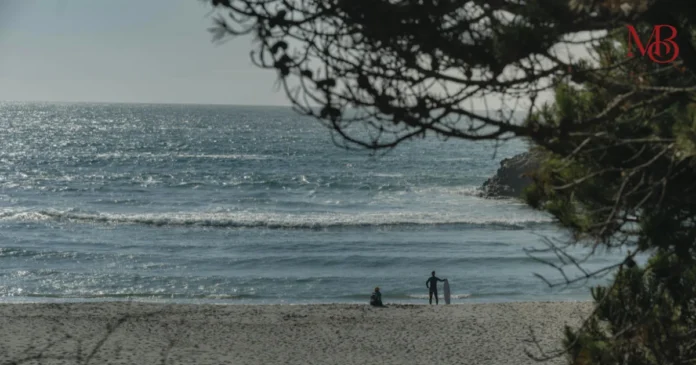It was one of those weekends that felt like a deep breath. I had flown into Lisbon for a short, much-needed break. The city was glowing in the late afternoon sun, music echoed softly from street corners, and everything moved just slowly enough to make you forget about home.

But two days into the trip, I found myself sitting in a local clinic with a severe stomach infection after eating something questionable at a food stall. Between struggling to explain symptoms and managing medical forms in Portuguese, I realised something far more uncomfortable: I didn’t have travel insurance.
That small decision, made in haste while booking my tickets, ended up costing more than I had budgeted for the entire trip.
For many travellers, especially those seeking relaxation, self-discovery, or creative inspiration, travel insurance feels unnecessary. It doesn’t promise a better view, a softer hotel bed, or a memorable meal. And yet, it can make all the difference when things go wrong.
What Travel Insurance Actually Does
At its core, travel insurance is a simple idea: it protects you financially when your trip doesn’t go as planned. That could mean medical emergencies, lost luggage, trip cancellations, delays, or even the theft of personal belongings. Some policies even cover more specific needs, such as adventure sports injuries or loss of work-related equipment like laptops and cameras.
The key benefit is peace of mind. While it may not prevent accidents or delays, it can help soften their impact, allowing you to stay calm, supported, and focused on the experience itself.
Real Experiences, Real Impact
A close friend of mine travelled through Iceland in a rented campervan last winter. One icy morning, her van slid into a shallow ditch. She was physically fine, thankfully, but the towing and repairs were expensive. Luckily, her travel insurance covered most of it, including the cost of a few extra nights in town while the vehicle was being fixed.
Another story comes from a designer I met in Chiang Mai. He lost his backpack in a tuk-tuk, along with his sketchbooks, tablet, and laptop. It was a hard emotional blow, but he was relieved that at least the value of his lost equipment was partially reimbursed. It allowed him to continue his creative work without starting over from scratch.
These aren’t extreme, rare tales. They happen more often than people assume, especially when travelling to unfamiliar places where language, weather, or infrastructure might catch you off guard.
The Common Reasons People Skip It
Many travellers, my past self included, skip insurance because the trip feels simple or safe. There’s a sense of optimism that overshadows preparation. A few familiar thoughts often come up.
Some believe that because the trip is short, insurance isn’t worth it. Others rely on their good health, assuming no problems will arise. Then there’s the belief that airlines or hotels will compensate if something goes wrong. Unfortunately, the fine print often tells a different story.
Even one unexpected event, a flight cancelled due to weather, a sudden illness, or misplaced baggage, can turn a dream trip into a logistical and financial challenge. Insurance isn’t just for the worst-case scenario. It’s there for the surprisingly common disruptions that can affect even the most thoughtfully planned holidays.
Read More: Why People Skip Buying Travel Insurance (and Why That Might Be a Mistake)
When Travel Insurance Matters Most
Travel insurance is especially valuable when you’re travelling internationally. Your local health insurance likely won’t cover medical expenses abroad, and private hospitals in popular tourist destinations can be surprisingly expensive.
It also matters when you’ve prepaid for experiences,non-refundable stays, tours, or events. If plans change due to illness or unexpected life events, travel insurance helps you recover those costs.
Creative professionals or digital nomads often carry valuable equipment. Cameras, tablets, laptops, these are not just tools but are essential to work and expression. Losing them is more than a financial loss; it disrupts the rhythm of your journey.
Finally, if your travels involve outdoor activities, hiking in the hills, exploring underwater reefs, or cycling through foreign terrain, insurance provides a safety net that lets you take part in those experiences with confidence.
A Thoughtful Addition to Your Packing List
Preparing for a trip often includes curating playlists, making packing lists, and finding the perfect balance between activity and rest. Travel insurance may not feel as tangible as a good pair of walking shoes, but it’s just as essential.
It allows you to truly unwind. To enjoy a new place with a lighter heart. To take risks without unnecessary fear. And to stay rooted in the purpose of your travel, whether that’s inspiration, rest, or simple joy.

What You Should Know Before Purchasing
Choosing the right policy doesn’t have to be complicated. Begin by assessing your travel plans. Consider how long you’ll be away, where you’re going, what you plan to do, and what you’re carrying with you.
Look at coverage options for medical expenses, cancellations, lost baggage, theft, and delays. Some providers offer digital platforms for easy claims, and others have dedicated 24/7 support lines. Reading through terms might not be the most exciting part of trip planning, but it ensures you know what’s protected.
It’s also a good idea to keep a digital and physical copy of your policy, along with emergency contact numbers, just in case connectivity becomes an issue.
Travelling abroad is often a celebration of freedom. It’s a break from the everyday, an invitation to explore new perspectives, places, and parts of ourselves. And while it’s important to stay spontaneous, being thoughtful about your safety allows for deeper presence and peace of mind.
Travel insurance is not about fearing the worst. It’s about protecting the best parts of your journey. It gives you the space to stay focused on the sunrise you woke early to see, the café conversation with a stranger, or the quiet joy of journaling beside a mountain lake.
You might also like: Why The Austrian Alps Should Be Your Next Vacation Destination
Before you zip up your suitcase and head off to your next adventure, take a moment to consider adding travel insurance to your essentials. It might just be the quietest, smartest decision you make for your trip.
Frequently Asked Questions (FAQs)
Q1. Is travel insurance necessary if I already have health insurance?
Most domestic health insurance policies do not cover medical emergencies abroad. Travel insurance fills that gap, often including emergency evacuation and hospitalisation expenses.
Q2. How much does it typically cost?
On average, it costs about four to ten percent of your total trip cost. That’s often less than the price of a nice dinner out during your trip, yet far more valuable if something goes wrong.
Q3. Can I buy it after I’ve booked my flights?
Yes, you can. In fact, you can purchase it up to a day before your departure. However, buying early ensures you get full coverage, including protection against trip cancellations that occur before your journey begins.
Q4 Is it difficult to file a claim?
Most modern insurers make it fairly simple, especially through mobile apps or web platforms. Just remember to keep receipts, medical reports, or documentation that support your claim.


